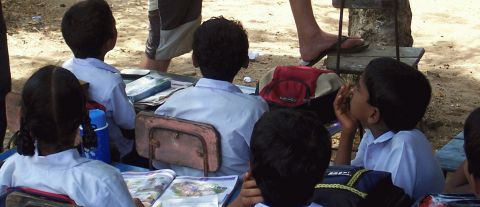Study guide with Social Psychology International Student Edition
Summaries and study assistance with the 2nd edition of Social Psychology by Heinzen & Goodfriend
- For Dutch Booksummaries with Social Psychology, see Samenvattingen per hoofdstuk bij de 2e druk
- For English Booksummaries with Social Psychology, see Summaries per chapter with the 2nd edition
- For English practice exams with Social Psychology, see Examtests with the 2nd edition
- For all available summaries, BulletPoints, practice exams and glossaries with Social Psychology, see Study guide with Social Psychology International Student Edition by Heinzen & Goodfriend - 2023/2024 on JoHo WorldSupporter
Related content on joho.org
Meer lezen over studie, stage en samenvattingen
Gerelateerde pagina's
Sociale psychologie en sociale relaties studeren en stage in het buitenland
Psycholoog en coach in het buitenland via betaald werk, stage of vrijwilligerswerk
Studeren in het buitenland verzekeren
Therapeutische vaardigheden: leren of versterken
Relaties en meer lezen
JoHo: crossroads via de bundel
- Samenvatting van An Introduction to Social Psychology van Hewstone & Stroebe
- Samenvatting van Applied social psychology: Understanding and managing social problems van Steg et al.
- Samenvatting van Applying Social Psychology: From problems to solutions van Buunk & Van Vught
- Samenvatting van Getting to yes: negotiating agreement without giving in van Fisher et al.
- Samenvatting van Groepsdynamica: Theorie en vaardigheden van Johnson & Johnson
- Samenvatting van Group Dynamics van Forsyth
- Samenvatting van Group Performance van Nijstad
- Samenvatting van Handbook of Bereavement Research: Consequences, Coping and Care van Stroebe e.a.
- Samenvatting van Influence: Science and Practice van Cialdini
- Samenvatting van Intergroup Relations van Brewer & Miller
- Samenvatting van Intimate Relationships van Miller
- Samenvatting van Lord of the Flies van Golding
- Samenvatting van The psychology of prejudice and discrimination van Whitley & Kite
- Samenvatting van Social and personality development van Shaffer ea.
- Samenvatting van Social Cognition: From Brains to Culture van Fiske & Taylor
- Samenvatting van Social Development van Clarke-Stewart & Parke
- Samenvatting van Social Groups in Action and Interaction van Stangor
- Samenvatting van Social Psychology van Aronson a.o.
- Samenvatting van Social Psychology van Baron & Branscombe
- Samenvatting van Social Psychology van Heinzen & Goodfriend
- Samenvatting van Social Psychology van Hogg and Vaughan
- Samenvatting van Social Psychology van Gilovich e.a.
- Samenvatting van Social Psychology van Kassin et al.
- Samenvatting van Social Psychology van Myers e.a.
- Samenvatting van Social Psychology van Smith et al.
- Samenvatting van Solidarity and social justice in contemporary societies van Yerkes & Bal
- Samenvatting van Trainingsboek conflicthantering en mediation van Prein
- Psychologie en Gedragswetenschappen: uitgelichte boeksamenvattingen
Sociale psychologie en sociale relaties studeren en stage in het buitenland
Activiteiten
Nieuws
Partners: met impact
JoHo WorldSupporter: crossroads
JoHo: crossroads in spotlight
- 1 van 4
- volgende ›
Chapters
Teksten & Informatie
JoHo: paginawijzer
JoHo 'chapter 'pagina
Wat vind je op een JoHo 'chapter' pagina?
- JoHo chapters zijn tekstblokken en hoofdstukken rond een specifieke vraag of een deelonderwerp
Crossroad: volgen
- Via een beperkt aantal geselecteerde webpagina's kan je verder reizen op de JoHo website
Crossroad: kiezen
- Via alle aan het chapter verbonden webpagina's kan je verder lezen in een volgend hoofdstuk of tekstonderdeel.
Footprints: bewaren
- Je kunt deze pagina bewaren in je persoonlijke lijsten zoals: je eigen paginabundel, je to-do-list, je checklist of bijvoorbeeld je meeneem(pack)lijst. Je vindt jouw persoonlijke lijsten onderaan vrijwel elke webpagina of op je userpage
- Dit is een service voor JoHo donateurs en abonnees.
Aanmelden
- Hier kun je naar de pagina om je aan te sluiten bij JoHo, JoHo te steunen en zelf en volledig gebruik te kunnen maken van alle teksten en tools.
Aanmelding: checken
- Hier vind je wat jouw status is als JoHo donateur of abonnee
Prints: maken
- Dit is een service voor wie bij JoHo is aangesloten. Wil je een tekst overzichtelijk printen, gebruik dan deze knop.
JoHo: aanmelden of upgraden
JoHo: footprint achterlaten




















